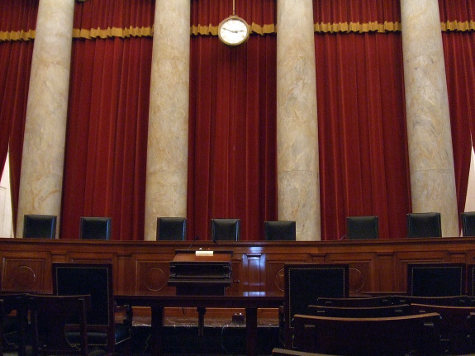
It’s constitutional for a city to adopt a new policy that lets you pay 30 times more taxes than your neighbor for the same service, a divided Supreme Court held this week.
Indiana law previously allowed cities to impose the costs of sewer improvements on city landowners. They paid either in lump sums upfront or in payments over time. But Indianapolis changed systems in 2005 to pay for sewers through bonds and other sources. People who were paying over a period of 20 or so years and were only a couple years into their payments got the same service pennies on the dollar as those who had paid upfront.
Some Indianapolis taxpayers sued in Indiana court, arguing these differing payments violate the Equal Protection Clause of the Fourteenth Amendment to the U.S. Constitution. After appeals, the Indiana Supreme Court sided with the city. And in Armour v. City of Indianapolis, the U.S. Supreme Court agreed in a 6-3 decision that split the conservative justices.
Among other things, the Fourteenth Amendment requires states provide equal protection under the law. People can sue whenever a law burdens some people differently than others.
But no constitutional right is absolute. The right to free speech doesn’t allow you to falsely shout “Fire!” in a crowded theatre. The Fourteenth Amendment was passed after the Civil War, and its driving purpose was to eradicate racial discrimination. So laws discriminating on race (such as affirmative action and racial preference programs) are subject to “strict scrutiny,” a high hurdle most laws can’t meet.
However, this law doesn’t involve race, any other suspect class, or any fundamental right. So this law need only meet a low standard called rational-basis review. “As long as the City’s distinction has a rational basis, the distinction does not violate the Equal Protection Clause,” Justice Stephen Breyer wrote for the majority.
Breyer explained, “where ordinary commercial transactions are at issue, rational basis review requires deference to reasonable underlying legislative judgments.” He added that legislatures have additional leeway to make distinctions in tax statutes, of which this is one.
Since some households owed as little as $25, the cost and administrative burden of collecting the remaining debt payments outweighed the benefits. Indianapolis decided this would defeat the purpose for making the switch. When rational-basis review is the standard, the Constitution doesn’t require government to make the best decision–just a reasonable one.
But Chief Justice John Roberts dissented, joined by Antonin Scalia and Samuel Alito. Roberts noted that Indiana law requires the tax be “primarily apportioned equally” among landowners. Here some landowners were making small payments over decades while others paid entirely upfront, so at worst some owners paid 30 times as much as others.
Tradition requires that when multiple justices dissent from a decision, the chief justice doesn’t write the dissent unless he feels particularly strongly on the issue. The chief is the head of the third branch of government (his title is “Chief Justice of the United States,” not “Chief Justice of the Supreme Court”). Although his vote counts no more than an associate justice, his voice carries a special moral authority, so a chief prefers to join someone’s dissent rather than write his own.
For Roberts, this case called for a dissent. “Our precedents do not ask for much from government in this area–only ‘rough equality in tax treatment’… We give great leeway to taxing authority in this area, for good and sufficient reasons. But every generation or so a case comes along when this Court needs to say enough is enough, if the Equal Protection Clause is to retain any force in this context.”
This case split the conservatives, as Justice Clarence Thomas–the most conservative member of the Court–sided with the liberals and moderates. This could be because this tax statute’s use of “apportioned equally” had been construed by the Indiana Supreme Court, and as a matter of state sovereignty Thomas wanted to give special deference to state courts interpreting their state’s laws. It could also be driven by recognition that the original meaning of the Equal Protection Clause concerned race, so its application should be limited for local economic laws. He places less value on wrong precedent when it concerns the Constitution.
Regardless of Thomas’ reasoning, the majority opinion has further removed federal courts from second-guessing state taxes, giving states a freer hand as they debate how to grapple with the mounting fiscal difficulties that have put many of them on the ropes as they struggle to fulfill the massive entitlements they’ve promised to their people.
Breitbart News legal contributor Ken Klukowski is on faculty at Liberty University School of Law.

COMMENTS
Please let us know if you're having issues with commenting.